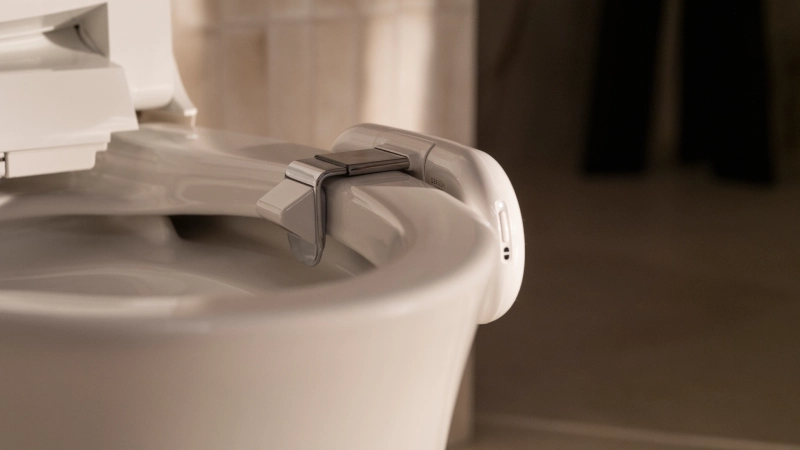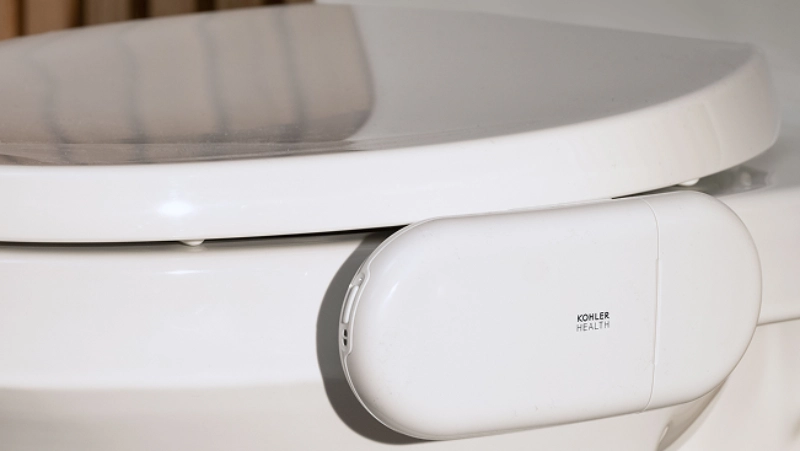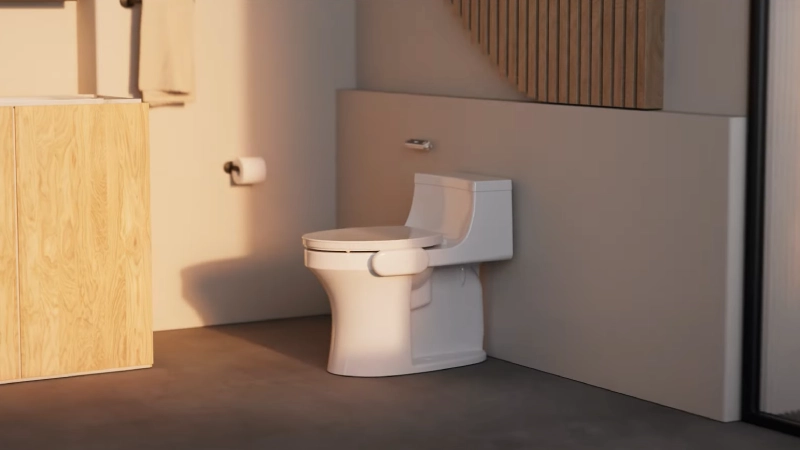Highlights
- Kohler launches Dekoda, a toilet-mounted health sensor using spectroscopy and machine learning.
- Dekoda tracks gut health, hydration, and blood presence, delivering insights via the Kohler Health iPhone app.
- Privacy-first design includes encryption, fingerprint access, and optional guest scanning control.
Kohler is expanding its portfolio of bathroom products with the launch of Dekoda, the first product in its new Kohler Health line. Introduced as a “first-of-a-kind product that illuminates your path to better living”, Dekoda is an iPhone-connected device designed to attach seamlessly to a toilet rim to monitor personal health through waste analysis. This advanced device aims to translate the body’s signals into real-time insights, thereby helping users decode their body’s cues.
Advanced Sensing Technology
Dekoda is primarily a health tracker that usually revolves around two major domains: gut and hydration. It also has blood detection capabilities. The Kohler Health app collects the insights obtained from Dekoda and visualizes them as a personalized health score for the user, which is supposed to make it easier to build long-term healthy habits.

To achieve this analysis, Dekoda employs sophisticated technology. It uses advanced spectroscopy and robust sensors to analyze what the body leaves behind. Specifically, Kohler notes that it employs advanced optical sensors and spectroscopy to observe how light interacts with waste. The gathered data is then analyzed using machine learning algorithms to generate health insights. While the device can pee into the toilet bowl for analysis, with its sensors pointing directly into the bowl, the company emphasizes on its website that the sensors “see down into your toilet and nowhere else”.
Design, Integration, and Data Security
The physical design of Kohler’s Dekoda is described as a sleek, self-clamping design intended to blend seamlessly into any bathroom environment. As an iPhone-connected health monitor, data security and privacy are central features. This incorporates privacy-first elements such as end-to-end encryption and fingerprint authentication.
Kohler offers an optional separate Bluetooth fingerprint scanner to enhance control over whose data is scanned. This scanner can be attached to a nearby wall and functions to prevent it from scanning guests’ waste.
Pricing and Membership Model
According to Kohler, the introduction of Dekoda represents the future of health. The device is currently available for pre-order from the Kohler website at a price point of $600.

However, using this requires a specific membership to the Kohler Health service. The membership pricing structure is set up to accommodate individuals and families:
• For a single person, the service costs 6.99 monthly or $70 yearly.
• For a family, the service covers up to five members at $12.99 monthly or $130 yearly.
Consumer Context and Reception
The device’s launch has attracted attention, particularly regarding the nature of its monitoring function. Despite Kohler’s focus on spectroscopy sensors, the device has been called an “iPhone-Connected Toilet Camera”.
Consumer reaction to the product, particularly the combination of cost, technology, and required subscription, reflects some modern skepticism. One commenter captured this sentiment by noting their general dissatisfaction with the trend: “A camera. In my toilet. On a subscription plan. I do not like this modern world”. Other humorous reactions included speculation about future integration with smart home systems, such as using the device to trigger a coffee maker, or concerns about targeted advertising based on waste data.
Regardless of public perception regarding the novelty and invasiveness of the technology, Dekoda is Kohler Health’s inaugural offering. It is designed to deliver personalized insights that decode everything a user’s body has been trying to tell them. Interested customers can learn more about this revolutionary monitoring system on Kohler Health’s official site.

Conclusion
The introduction of Dekoda was a daring move by Kohler into the health tech sector as they seek to make wellness part of daily activities. The company focuses on gut health and hydration and insinuates that future updates may enable it to monitor dietary patterns, microbiome changes, and even early signs of chronic conditions. The Kohler Health app will grow in line with the feedback from the users, hence, providing more focused suggestions and displaying health trends over a long time.
Privacy issues are still being debated, but Kohler assures that it is doing everything possible to maintain ethical data practices and give users control over their data. As more smart devices and systems become interconnected, it could very well be the point in the network that facilitates the merging of convenience and clinical insight in personalized health monitoring, thus taking the role of a mediator between the two.
